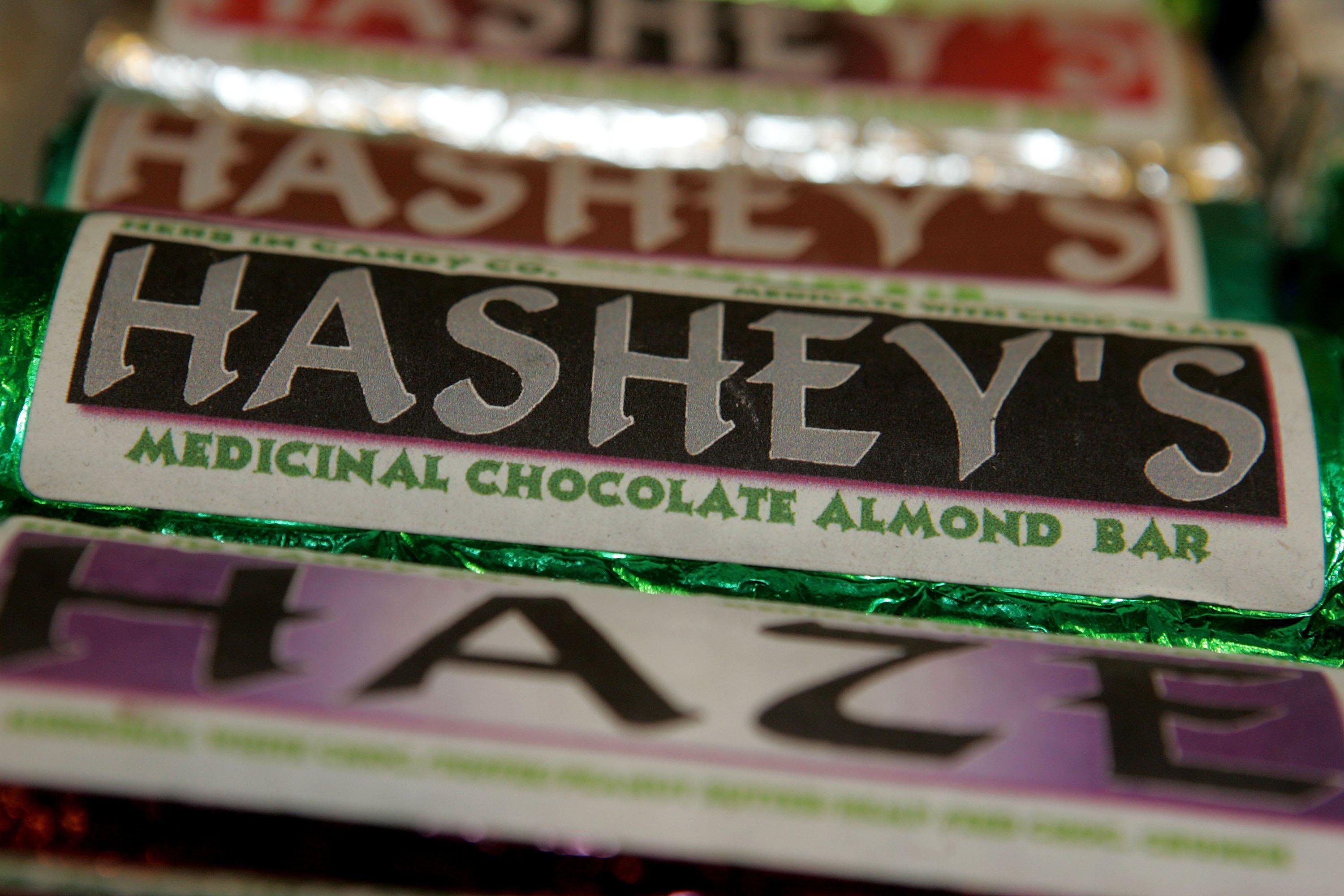For her latest column, Maureen Dowd adventured to Colorado for an up-close-and-personal look at the state’s booming cannabis industry. One night, sitting alone in a hotel room, she seems to have nibbled on enough THC-infused chocolate to plunge herself into a deeply (and pretty amusingly) tripped-out state of catatonia:
I felt a scary shudder go through my body and brain. I barely made it from the desk to the bed, where I lay curled up in a hallucinatory state for the next eight hours. I was thirsty but couldn’t move to get water. Or even turn off the lights. I was panting and paranoid, sure that when the room-service waiter knocked and I didn’t answer, he’d call the police and have me arrested for being unable to handle my candy.
I strained to remember where I was or even what I was wearing, touching my green corduroy jeans and staring at the exposed-brick wall. As my paranoia deepened, I became convinced that I had died and no one was telling me.
It turns out, the candy bar that so innocently reminded Dowd of the confections of her youth was supposed to be broken into 16 pieces for novice marijuana users, “but that recommendation hadn’t been on the label.” And, of course, nobody had warned her.
After just five months of sales, Colorado’s commercial marijuana industry is still very much in its infancy. And as Dowd writes, regulators are grappling with how best to regulate it—especially when it comes to edible products like candies and baked goods that can be extraordinarily potent but also wildly inconsistent and poorly labeled. Already, there are enough horror stories floating around for a Web-short update of Reefer Madness. Children have been turning up ill in hospitals after swiping their parents’ cannabis-infused treats. A foreign-exchange student in Denver reportedly leapt off a balcony to his death after eating pot-laced cookies, and a husband is accused of shooting and killing his wife while high on marijuana and, possibly, prescription painkillers. Less well reported outside of Colorado have been the basic quality control issues. A Denver Post investigation found that edibles routinely had less THC than advertised.
The state of Colorado has responded to these problems by trying to impose stricter standards. As of May, it began requiring manufacturers to test their products for potency and consistency at independent labs. Batches that are too strong, or where the drug isn’t evenly distributed through the food (you don’t want all the THC to be loaded into one half of a cookie), have to be dumped or fixed. Lawmakers are also contemplating new labeling and packaging rules.
But I think the Colorado’s experience so far points to another lesson: Namely, the cannabis business is probably the sort of industry that would be better off dominated by big, name-brand manufacturers. It’s perfectly fine to have government-mandated product testing. But it’s even better to have companies that mass produce a highly standardized product and are willing to invest in the technology to get it right every single time. From a safety perspective, you want a Hershey’s or Entenmann’s of edibles, rather than a hodge-podge of pot boutiques and small companies distributing locally. At the very least, we’d be better off with companies the size of large craft brewers, which tend to be more attentive to quality control than their tinier cousins, in part because they have the money to spend on it.
In a world where marijuana wasn’t illegal on the federal level, the most successful pot bakeries and confectioners would probably scale up their businesses naturally. Mandated lab testing will be somewhat costly, especially if producers regularly have to toss bad batches, which will put bigger companies at a natural advantage. Large corporations are also generally better equipped to deal with the liability issues that arise when you sell an intoxicating product, since they can pay for things like lawyers and insurance.
Of course, Marijuana is still very much contraband so far as the feds are concerned. And even though the Justice Department has tried to provide banks guidelines for legally dealing with marijuana businesses in places like Colorado, they’re understandably skittish. And without much bank lending, it’ll be hard for producers to scale. All of which is to say, the pot business would probably be a bit safer if it could really operate like any other business.
